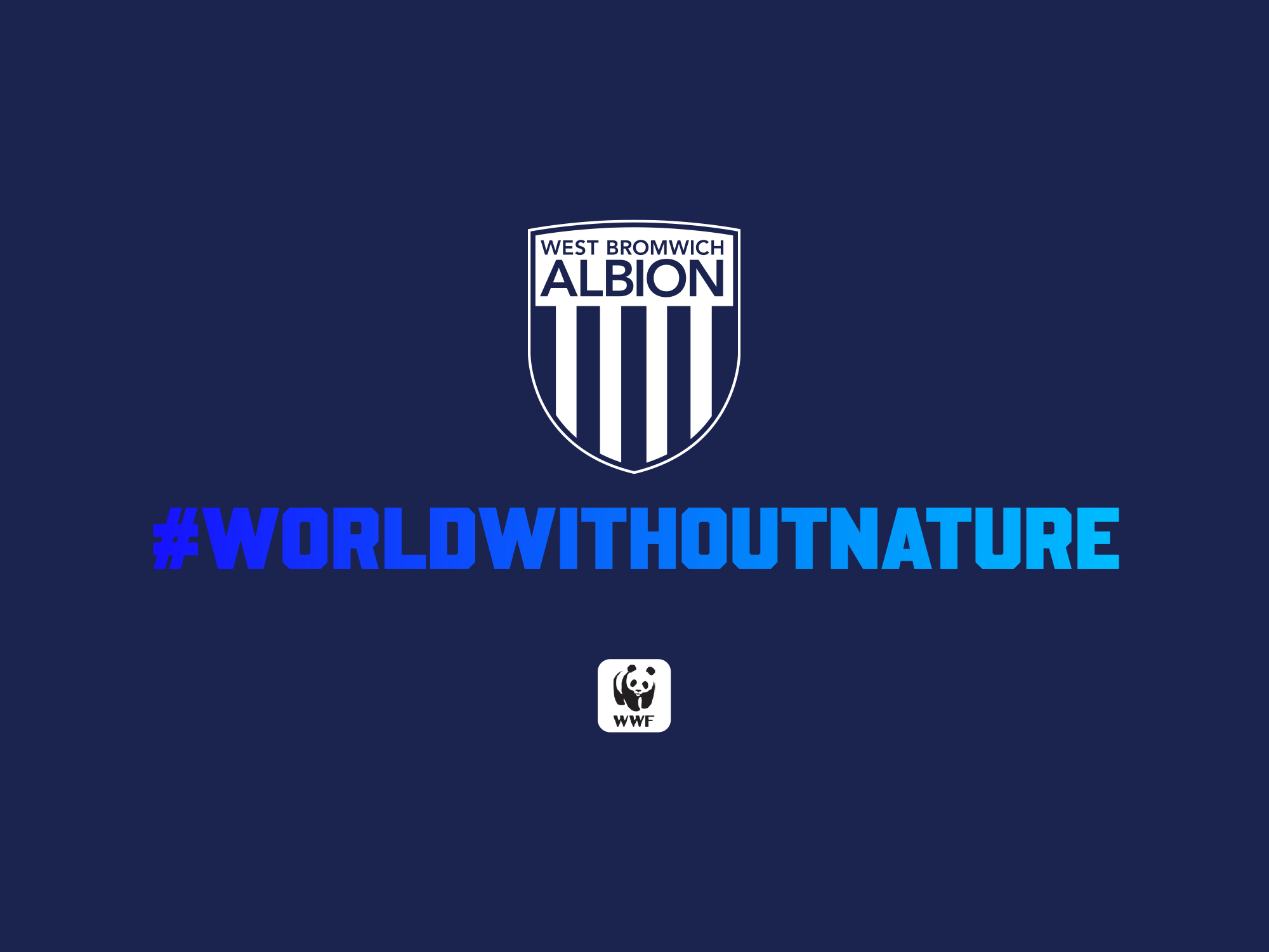West Bromwich Albion is proud to support the WWF’s #WorldWithoutNature social media campaign on World Wildlife Day (Sunday, March 3) for the fourth year running.
The Baggies are once again joining a number of the planet’s most famous corporations and sports teams in removing nature from their branding in an action which aims to highlight the catastrophic loss of biodiversity globally and the social and economic risks it poses.
The iconic throstle bird, which has been an image associated with West Bromwich Albion for more than a century, sitting on the hawthorn tree in the middle of the club’s crest, will be removed for 24 hours across our digital channels.
Former club secretary Tom Smith decided the throstle, a Black Country term for a song thrush, should be the club emblem back in 1884. At that time, the team would get changed in the Plough and Harrow pub which lay adjacent to Stoney Lane, Albion’s former home. The landlady kept a very chirpy throstle which the players would look at as they walked out to the pitch. If the bird made plenty of noise, the players would see that as an omen for success.
Some of the brands and clubs confirmed to take part this year include Air Wick, Aston Villa, Carlsberg, Dove, Gymshark, Hull City, Leicester Tigers, Liz Earle Beauty Co, Norwich City, Old Mout Cider, On The Beach, Sale Sharks, ScottishPower and Swansea City.
Global wildlife is under threat
In the UK and around the world, nature is in crisis. Global wildlife populations have plummeted by an average of 69% since 1970. Here in the UK, we've lost 70% of our ancient woodlands, our rivers are polluted and our wildflower meadows are almost gone.
We can’t survive in a #WorldWithoutNature.
About WWF
WWF (World Wide Fund for Nature) is a global environmental charity, and they're bringing our world back to life. With nature in freefall, the organisation are urgently tackling the underlying causes that are driving the decline – especially the food system and climate change.
WWF are finding solutions so future generations have a world with thriving habitats and wildlife. It’s a huge challenge, but there is hope. They're working globally with governments, companies, communities and others who have the will to act and the power to transform our world.
They are using their ground-breaking scientific research, global influence and the backing of many supporters to make sure the natural world’s vital signs are recovering by 2030.
Find out more about their work, past and present at wwf.org.uk.
